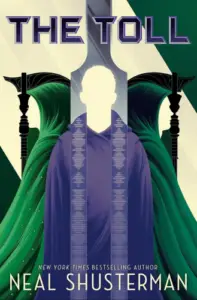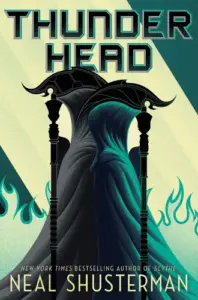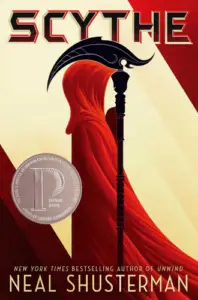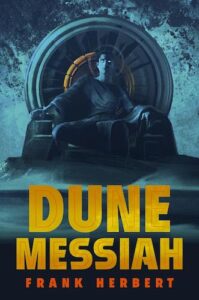Death’s End
Book Author: Liu Cixin
Summary reviewed by:
Terrence Timmons
Terrence Timmons
Analyst
Bachelor of Arts (BA), University Of California, Santa Barbara 2019
With over 4 years of experience as an analyst. Terrence Timmons is committed to analyzing summaries without compromising on quality.
Death’s End: Summary
Death's End, the grand finale of Liu Cixin's Remembrance of Earth's Past trilogy, catapults readers into a future where humanity is a mere whisper away from annihilation or transcendence. The narrative unfolds across various celestial settings, from the familiar cradle of Earth to the enigmatic expanses of the universe, painting a story of cosmic intrigue and existential dread. In this saga, the boundaries of science fiction are not just pushed but shattered, as Liu interweaves theoretical physics with human emotions and cultural legacies, charting a course through the stars that questions the very essence of civilization and its place in the cosmos.
At the heart of Death's End is humanity's struggle for survival in an unforgiving universe, governed by the dark forest theory, where civilizations are predators lying in wait for the faintest glimmer of life to extinguish. The story navigates through layers of space-time manipulation, alien diplomacy, and cosmic engineering feats, all while exploring the fragile nature of peace and the indomitable spirit of those who dare to challenge the status quo. Liu's narrative is a masterclass in suspense, unveiling mysteries that span light-years and centuries, urging readers to ponder the paradoxes of existence and our enduring quest for meaning amidst the vast, indifferent universe.
Spoilers (watch a short ad to reveal spoilers)
Death’s End: Genres
Science Fiction
Hard Science Fiction
Space Opera
Alien Invasion
Philosophical Fiction
Death’s End: Main Characters
Cheng Xin: An aerospace engineer and later a key political figure, she embodies compassion and ethical leadership. Her decisions, often guided by empathy rather than pragmatism, influence humanity’s course and reflect the moral complexities of survival.
Luo Ji: An astronomer and sociologist who becomes humanity’s first Swordholder, he personifies the weight of responsibility and the intellectual curiosity to unravel the universe’s mysteries. His strategic genius and understanding of the dark forest theory shape humanity’s defensive posture.
Yun Tianming: Initially introduced in the trilogy’s second book, his story intertwines with Cheng Xin’s, symbolizing the depths of human emotion and the sacrifices made for love and survival. His tales, told from the brink of death, carry profound implications for the fate of humanity.
AA: A military officer and Cheng Xin’s close friend, she represents the contrasting pragmatic and militaristic approach to survival, emphasizing the need for strength and decisive action over pacifism.
Death’s End: Themes
The Dark Forest Theory: A metaphor for the predatory nature of civilizations in the cosmos, suggesting that silence and stealth are survival mechanisms in a universe where visibility could lead to annihilation. The theory shapes the trilogy’s central conflict and philosophical musings on existence and cohabitation.
The Nature of Time and Space: Explored through the manipulation of space-time, light-speed travel, and the universe’s dimensions, this theme questions the linear perception of time and the vast, uncharted territories of space, pushing the boundaries of human understanding.
Existential Risk and Survival: The trilogy, and Death’s End in particular, delves into the sacrifices and ethical dilemmas faced by civilizations at the brink of extinction. It examines the value of cultural and individual survival against the backdrop of cosmic calamities.
Humanity and Its Place in the Universe: Through the characters’ journeys and the civilizations they encounter, Liu explores the idea of humanity’s insignificance and potential in the vast cosmos, urging a reflection on our values, legacy, and the pursuit of a collective future.
The Power of Science and Technology: A recurring theme is the double-edged sword of technological advancement, offering both the promise of transcendence and the peril of self-destruction. The narrative probes the ethical implications of scientific discoveries and their role in shaping civilizations’ destinies.
Death’s End: Methodology
In creating this summary, our primary aim was to immerse you, our esteemed reader, in the vast and intricate universe of Liu Cixin's imagination, ensuring a seamless blend of intrigue and enlightenment.
Through meticulous analysis, our team delved into the philosophical depths of Death's End, highlighting its profound exploration of themes such as the dark forest theory, existential risk, and the dual nature of technological progress.
We distilled these complex concepts into an engaging narrative, mirroring the author's knack for weaving scientific rigor with the vibe of human experience.
In doing so, we uphold our commitment to quality and integrity, ensuring that each word reflects the essence of Liu's vision, providing you with a beacon of insight into the realms of science fiction and beyond.
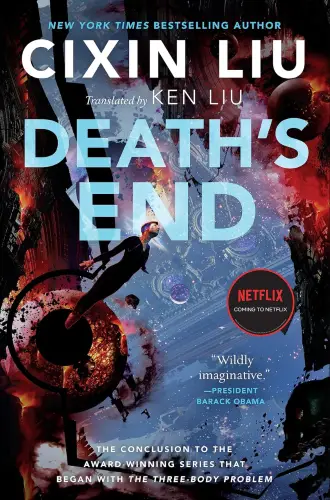

Death’s End
Date Published: November 2010
Disclaimer: As an Amazon Associate I earn from qualifying purchases.

